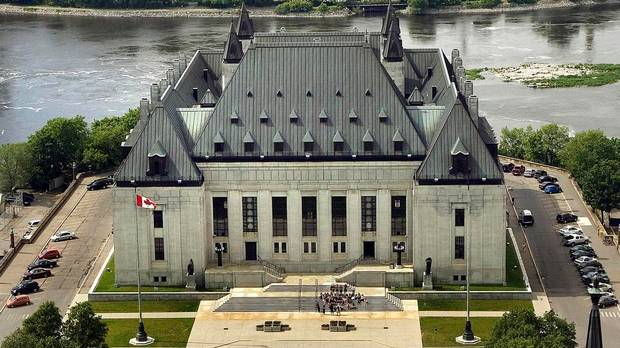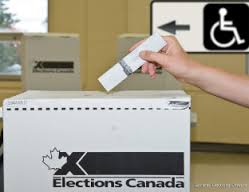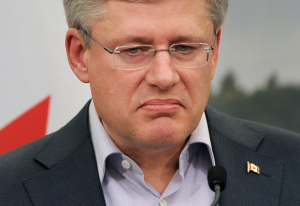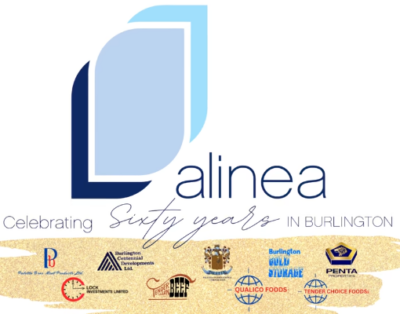January 4th, 2016
BURLINGTON, ON
Job number one for the new federal government will be restoring the good ship Canada.
The previous government will be remembered for its poorly (ideologically) conceived legislation which kept getting overruled by the Supreme Court. Bill -51 (police state), the (un)Fair Elections Act, the Environmental Assessment and the Fisheries acts, and the Safe Streets and Communities Act (mandatory prison sentencing) are but a sampling. Others were typically buried in omnibus legislation so as avoid scrutiny.

The Supreme Court in Ottawa – not a Court that the Harper government was able to convince very often.
It appears the government backdated authority for the RCMP to destroy gun registry records, which is improper if not illegal. This little trick was buried in one of the several omnibus bills that had everything imaginable stuffed into them; an example was the Tory’s signature law, “Ending the Long-gun Registry Act’ .
This long-gun registry has been problematic since its inception, and it is unlikely Mr. Trudeau, who once referred to the registry as a mistake, will be in any hurry to restore it.
And speaking of guns, Canadian war planes are still in action in the Middle East, something which most Canadians seem to agree with. Bringing our six planes home will not significantly affect the fight in that region, although we should be proud of our fly-boys. And it appears that IS, Daesh, ISIL or whatever they call themselves are on the run.
The real danger is that these extremists will end up diminished but not destroyed, holed up in some hideout, and like al Qaeda dropping in to spoil our party from time to time, as they did in Paris.
Mr. Trudeau pledged to change the way we elect MP’s, thus making our current multi-party electoral system, known as First-Past-the-Post (FPP), more representative. At least 60% of electors typically vote for someone other than a Conservatives candidate. That implies that moving to a mixed member proportional system (MMP) or a preferential ballot, would ensure that the Conservative Party would never again be able to form a majority government.
Of course all bets are off if the Conservatives were to re-position themselves closer to the political centre. And of course, they could merge with the NDP and then honestly call themselves progressive-conservatives once again.
At a recent biennial policy conference the Liberal party endorsed a preferential ballot, a variation on the FPP. Voters rank their choices on the ballot and, if no candidate gets a plurality, second choices are added to the calculation until someone obtains 51% of the vote. It’s not really as complicated as I’ve made it sound, and the calculations can be done instantly by computers, even if paper ballots are marked. This option is where the smart money can be found.
Still one should never say never – except that our new PM has said never again to the very system which gave him a majority government with less than 40% of the vote. Still it was a larger share of the vote than either Harper or Chretien had obtained. So the Conservatives are demanding a national referendum. Not that Mr. Harper ever held a referendum on any of his legislation, such as the Fair Elections Act.
Perhaps our former PM understood that a referendum can be a messy business. Just look at what happened to Brian Mulroney when he rolled the dice and lost the ill-fated Charlottetown Accord. About half of Canada’s provinces have at least considered implementing MMP provincially. And B.C. and Ontario, each held a referendum, which failed to meet their critical thresholds for adoption.
Call it a communications/messaging failure by the governments or see it as a failure to win by deliberate design. The truth is that these once enthusiastic champions for electoral reform seemed to lose interest after they had become the government. Interestingly, New Zealand made the move to MMP back in the 1990’s with considerable backing by the public in their referendum campaigns. More recently the province of Ontario has announced that it will allow municipalities to use ranked/preferential ballots to determine the winners in the next local elections.
Nevertheless the new Tory interim-leader is determined to block any change without first polling all Canadians, and has even threatened to use her majority in the Senate. Of course since we are a federation, Mr. Trudeau might want to obtain a sign-off from at least seven provinces comprising 50% of our population (the amending formula for the constitution) before moving forward. That would allow him to withstand a constitutional challenge in the courts, should one be forthcoming.
As for the Senate there are over 20 vacancies which need to be filled, and the government appears to be intent on filling them based on merit, and in a non-partisan fashion. Meanwhile Senator Duffy’s days are almost certainly numbered, though he’ll likely escape with a slap on the wrist. The core of the problem, which even he concedes, is that he should never have been appointed to represent PEI in the first place.
Provincial plans and national targets for climate changing emission reductions will be addressed early this year. And if they are smart, the federal government will work to integrate the various provincial programs into a national framework, including any ‘cap and trade’ or other carbon tax provincial programs.
It is inevitable that there will have to be new incentives for individuals and enterprises to cut emissions, plant trees, etc.. So if you are looking to make renovations to that draughty house or contemplating buying a new car, like me, it might be prudent to wait a few months. And to help pay for these financial incentives expect to see some kind of carbon tax as well as a national cap and trade program. And what about Ontario’s converting its high occupancy vehicles (HOV) lanes into a tollroad – just a teaser or a harbinger of what waits for all of us?
Below are my expectations of what is coming and the probability of occurrence.
• Electors in Saskatchewan will re-elect Brad Wall (60%)
• Electors in Manitoba will vote for a change (70%)
• Ontario will kick off major infrastructure building program (100%)
• Canadian dollar will stay low benefiting Ontario businesses (80%)
• Continued low oil prices will see Alberta trade places with Ontario as ‘have’ provinces (90%)
• A lower dollar will lead to inflation and higher interest rates (60%)
• Ontario pension plan will be a pilot project and rolled into CPP (60%)
• Income taxes will become more progressive at both upper levels of government (50%)
• US electors will get a new president and it won’t be the Donald (100%)
• Eastern Europe will become more tense as Russia/Ukraine conflict continues (90%)
• There will be proxy wars in the middle east between Iran and Sunni Muslim states (80%)
• UK will prepare for BREXIT referenda in 2017 (100%) and stay in EU (60%)
• Canada’s Conservatives move to the middle and prepare for new leader in 2017 (60%)
• Globe and Mail ahead of me (great minds…) with this kind of story (100%)
• I’m going to take a break for a month or so (100%)
Ray Rivers writes weekly on both federal and provincial politics, applying his more than 25 years as a federal bureaucrat to his thinking. Rivers was a candidate for provincial office in Burlington where he ran as a Liberal against Cam Jackson in 1995, the year Mike Harris and the Common Sense Revolution swept the province. Rivers is no longer active with any political party.
Background links:
Gun Registry Screw-Up Gun Registry Charlottetown FPP
MMP in New Zealand Democratic Reform Ranked Ballots Ontario Looking Forward More Looking Forward
Food Prices 2016 Big Issues 2016























How has the Canadian dollar being low benefited Ontario businesses? Since the previous PM took policy decisions leading us to a 30% discount in the values of the currencies, it seems that the economy in Ontario/Canada has only gotten worse. If you suggest that it takes time and that, maybe we should wait 5 years, I say, no. Stuff it! Instead, this is a time when we should be promoting supporting our neighbours in Ontario by buying local (craft beer) and ceasing support for foreign controlled conglomerates… like … the Brewers Retail. If we couple that with agricultural policies that promote quality more than quantity and promoting more small businesses, then we can abandon this low-dollar strategy and our dependency on simply exporting raw materials.
Ray – I have a forecast for you
– Chance the CON’s will complain about everything and anything – 100%, lol